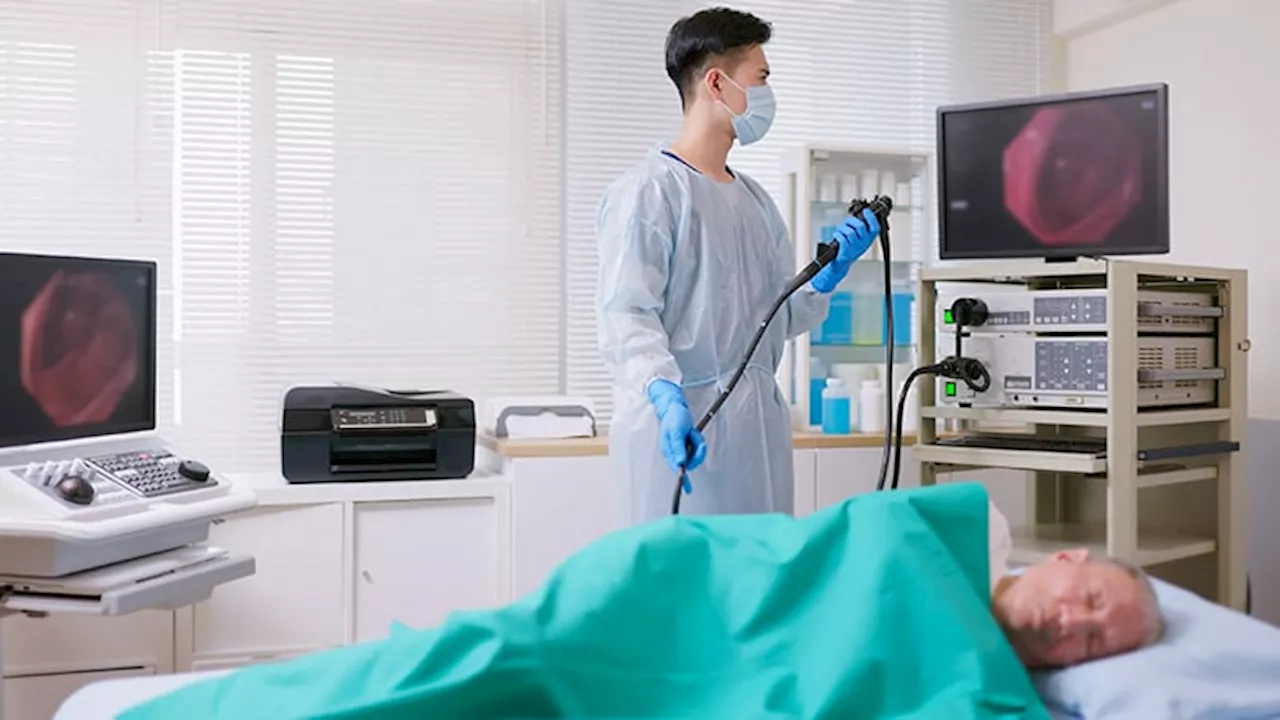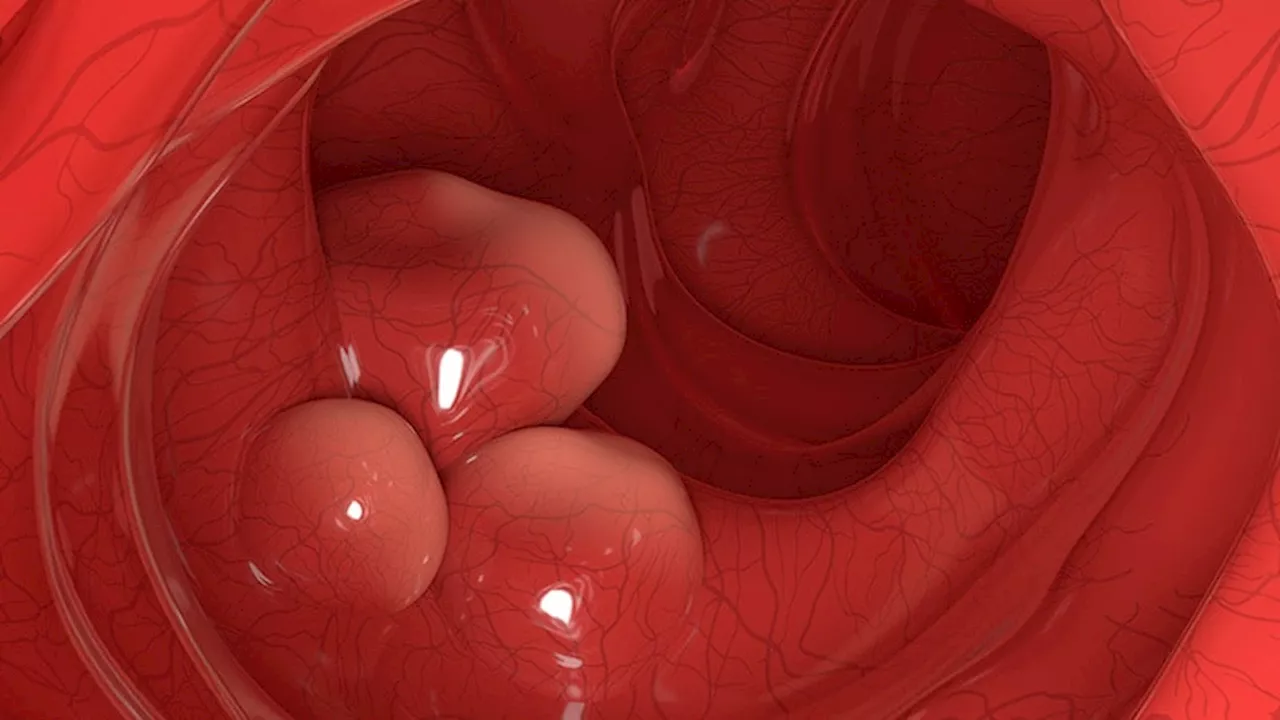The risk for colorectal cancer was associated with the frequency of colorectal polyp diagnoses in relatives in a study based on family cancer datasets.
Frequent colorectal polyp diagnoses in first- and second-degree relatives are associated with an increased risk for colorectal cancer , especially early-onset CRC.Researchers evaluated the association between the frequency of colorectal polyp diagnoses in relatives and the risk for overall and early-onset CRC using data from four Swedish family cancer datasets .
In total, 11,676,043 individuals born after 1931 with at least one known first-degree relative were included; the median follow-up duration was 31 years. Individuals with one first-degree relative with frequent polyp diagnoses had a 2.27-fold increased risk for early-onset CRC and a 1.82-fold increased risk for overall CRC .
Colorectal Cancer (CRC) Polyp Cancer Malignant Neoplasia Carcinoma Malignant Neoplasm Bowel Preparation Germany German Healthcare And Medical Technology Health And Medical Tech Health And Med Tech Health And Medical Technology Healthcare Technology Medical Technology
United States Latest News, United States Headlines
Similar News:You can also read news stories similar to this one that we have collected from other news sources.
 AI-Driven Colonoscopy Aid Module Boosts Premalignant Polyp DetectionResults from a British trial add to the growing body of evidence supporting the use of AI-aided colonoscopy to increase premalignant colorectal polyp detection.
AI-Driven Colonoscopy Aid Module Boosts Premalignant Polyp DetectionResults from a British trial add to the growing body of evidence supporting the use of AI-aided colonoscopy to increase premalignant colorectal polyp detection.
Read more »
 Cold Endoscopic Mucosal Resection for Colorectal Polyps: Safety Gains Come at Cost of RecurrenceDespite having a better safety profile, cold endoscopic mucosal resection led to a higher risk for recurrent/residual neoplasia.
Cold Endoscopic Mucosal Resection for Colorectal Polyps: Safety Gains Come at Cost of RecurrenceDespite having a better safety profile, cold endoscopic mucosal resection led to a higher risk for recurrent/residual neoplasia.
Read more »
 Daily Calcium Intake Linked to Lower Colorectal Cancer Risk in WomenA new study published in found that women who consumed about 300 milligrams of calcium daily from food had a 17% lower risk of developing colorectal cancer. The study, which analyzed data from over 540,000 women in the UK, suggests that calcium may protect against colorectal cancer by binding to bile acids and fatty acids in the colon, reducing their cancer-causing potential. However, experts emphasize the importance of a healthy diet overall, including limiting alcohol, sugar, red meat, and processed foods, for cancer prevention.
Daily Calcium Intake Linked to Lower Colorectal Cancer Risk in WomenA new study published in found that women who consumed about 300 milligrams of calcium daily from food had a 17% lower risk of developing colorectal cancer. The study, which analyzed data from over 540,000 women in the UK, suggests that calcium may protect against colorectal cancer by binding to bile acids and fatty acids in the colon, reducing their cancer-causing potential. However, experts emphasize the importance of a healthy diet overall, including limiting alcohol, sugar, red meat, and processed foods, for cancer prevention.
Read more »
 New Study Shows How Fiber-Related Gut Bacteria Changes Fight Colorectal CancerA new study published in Nature Metabolism reveals how changes in gut bacteria, triggered by fiber intake, may help combat colorectal cancer. Short-chain fatty acids (SCFAs) produced by gut bacteria through fiber fermentation are found to influence gene expression in ways that promote normal cell function and inhibit colorectal cancer cell growth. This sheds light on the potential mechanisms behind the observed protective effect of high-fiber diets against colorectal cancers.
New Study Shows How Fiber-Related Gut Bacteria Changes Fight Colorectal CancerA new study published in Nature Metabolism reveals how changes in gut bacteria, triggered by fiber intake, may help combat colorectal cancer. Short-chain fatty acids (SCFAs) produced by gut bacteria through fiber fermentation are found to influence gene expression in ways that promote normal cell function and inhibit colorectal cancer cell growth. This sheds light on the potential mechanisms behind the observed protective effect of high-fiber diets against colorectal cancers.
Read more »
 Blood Test Shows Promise for Early Colorectal Cancer DetectionA new blood test for early colorectal cancer (CRC) detection in average-risk adults showed promising results in a large clinical trial. The test met primary endpoints for sensitivity and specificity, offering a potentially convenient and effective screening option. While sensitivity for advanced precancerous lesions was lower than expected, researchers are optimistic about future optimization and broader clinical applications.
Blood Test Shows Promise for Early Colorectal Cancer DetectionA new blood test for early colorectal cancer (CRC) detection in average-risk adults showed promising results in a large clinical trial. The test met primary endpoints for sensitivity and specificity, offering a potentially convenient and effective screening option. While sensitivity for advanced precancerous lesions was lower than expected, researchers are optimistic about future optimization and broader clinical applications.
Read more »
 Five Signs of Colorectal Cancer You Should Never IgnoreDr. Cedrek McFadden, a colorectal surgeon, shares five crucial signs that could indicate colorectal cancer, urging individuals to consult a doctor if they experience any of these symptoms.
Five Signs of Colorectal Cancer You Should Never IgnoreDr. Cedrek McFadden, a colorectal surgeon, shares five crucial signs that could indicate colorectal cancer, urging individuals to consult a doctor if they experience any of these symptoms.
Read more »
